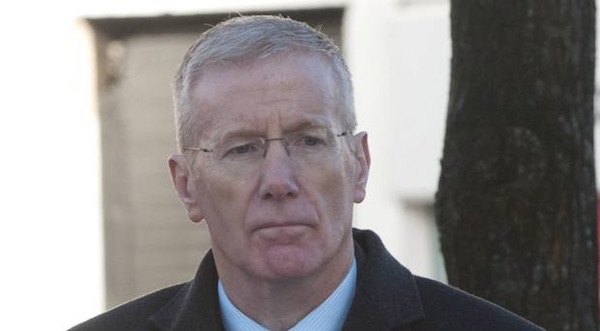
Sinn Fein and the DUP do not agree on when a new attempt to restore powersharing in Belfast will be made, with claims by East Derry MP Gregory Campbell that negotiations are to resume “within the next 10 days” not shared by Sinn Fein.
Mr Campbell (pictured) told BBC Radio that some differences between the parties had been partly resolved.
“It will be the case that there will be more talks,” he said. “Hopefully they will be more productive than they have been recently and gaps have been narrowed.
However, Sinn Fein's John O’Dowd said in response that “another round of talks for talks’ sake” have no political or public credibility.
He said the focus should be on implementing previous agreements.
“After the last phase of talks failed Sinn Fein met with both the Taoiseach and British Prime Minister to make clear that it is now their responsibility to bring forward proposals for meaningful talks which have agreement as an objective and can reach a successful conclusion,” he said.
“The focus must therefore be on the implementation of previous agreements and the delivery of a rights-based society rather than venue or process which will not resolve these fundamental difficulties.”
Meanwhile, the DUP has accused the Taoiseach Leo Varadkar of using “inflammatory language” after he said the Government want to see real and meaningful involvement in the Six Counties if efforts to restore Stormont fail.
Mr Varadkar said in the absence of devolved government in the North, he would not support Direct Rule from London.
“Essentially the Good Friday Agreement provides for matters that are not devolved to be dealt with by the British-Irish governmental conference and that’s what we will seek,” he said.
“We won’t be supporting Direct Rule. We didn’t support Direct Rule.
“So the alternative to the assembly and the executive being up and running is either a) an election, or b) convening the British-Irish governmental conference, and that’s what we’ll seek, and I should point out that is what the Good Friday Agreement says.”
Tanaiste and Foreign Affairs Minister Simon Coveney also suggested that Dublin may take an active role in the absence of power-sharing by “triggering Intergovernmental Conferences to make decisions on Northern Ireland.”
The British-Irish Intergovernmental Conference met five times during a previous Stormont collapse in 2006/2007. DUP leader Arlene Foster has dismissed it as a “talking shop”.
Asked if he envisaged a form of joint rule, the taoiseach said: “I wouldn’t use the term joint rule, because that’s not the term used in the Good Friday Agreement.
“The Good Friday Agreement speaks of a British-Irish governmental conference which is not joint rule because obviously the legislative powers remain at Westminster, but it does involve real and meaningful involvement of the Irish government.”
Deputy leader Nigel Dodds accused the Dublin government of “loose, inaccurate and misrepresentative language”, while DUP MP Jeffrey Donaldson said the Dublin government has “no mandate to govern” in the North.
“If you are going to repair relationships, the first thing you stop doing is using this type of inflammatory language,” he said.
In response to unuionist presure, a British government statement said: “We will never countenance any arrangement, such as joint authority, inconsistent with the principle of consent in the agreement.”
Senior Sinn Fein representative Alex Maskey suggested the response represented a “slapdown” for the Dublin government’s position.
Colleague Conor Murphy said the DUP and the British government need to focus on the creation of a new Executive.
“There will be no return to the status quo,” Mr Murphy said. “Sinn Fein is determined to see the restoration of sustainable power-sharing institutions on the basis of equality, rights and respect.”
He added: “Unionism’s faux outrage at the Taoiseach’s comments which are simply in line with the Good Friday Agreement is about deflecting attention from its denial of rights.
“Under the provisions of the Good Friday Agreement an intergovernmental conference involving the Irish and British governments should be called in the absence of political institutions.”
![[Irish Republican News]](https://republican-news.org/graphics/title_gifs/rn.gif)
![[Irish Republican News]](https://republican-news.org/graphics/title_gifs/harp.gif)

